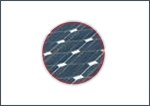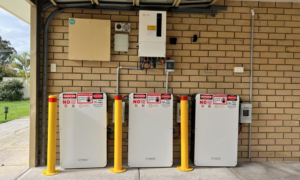The Japanese government plans to install a massive battery at an electrical substation on the island of Hokkaido.
According to the Japan Times, the country’s Ministry of Economy, Trade and Industry (METI) says the battery will be put in place by the end of the first quarter in 2015 to help develop a stable electricity supply generated by solar and wind power sources.
The battery system will have a storage capacity of around 60,000 kWh and will use up a large portion of ¥29.6 billion earmarked for battery projects.
Hokkaido is Japan’s second largest island and the largest and northernmost of Japan’s 47 prefectures. It has become a hive of renewable energy activity due to the availability and low prices of suitable land. According to Bloomberg, the island’s power infrastructure is approaching its limit for handling the amount of clean electricity being generated.
Japan has seen solar uptake skyrocket since the introduction of a feed in tariff scheme, currently paying 38 yen per kilowatt hour (around AUD 38 cents) for rooftop solar power systems under 10kW and slightly more for larger systems.
In other renewables news out of Japan, METI states based on data compiled by the Agency for Natural Resources and Energy (ANRE), the total combined new renewable energy capacity added between April 1, 2012, and January 31, 2013, reached 1,394,000 kW .
Photovoltaic power facilities accounted for 1,329,000 kW, with household solar panel systems making up 1,023,000kW of that amount.
METI notes that 37,000kW capacity was added by January 31 – with all of that being added after June 2012.
METI also announced Japan and India have decided to hold the “India-Japan Energy Forum 2013” in September in New Delhi and Greater Noida, which aims to reinforce the two nation’s cooperation in the field of energy.












































